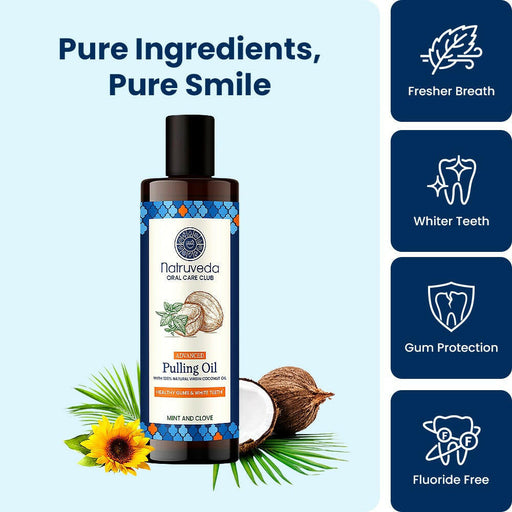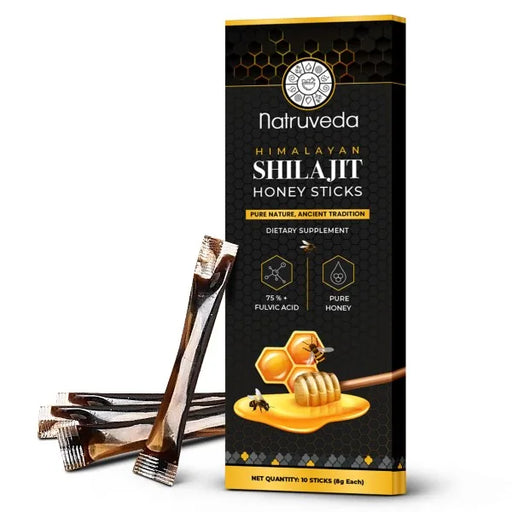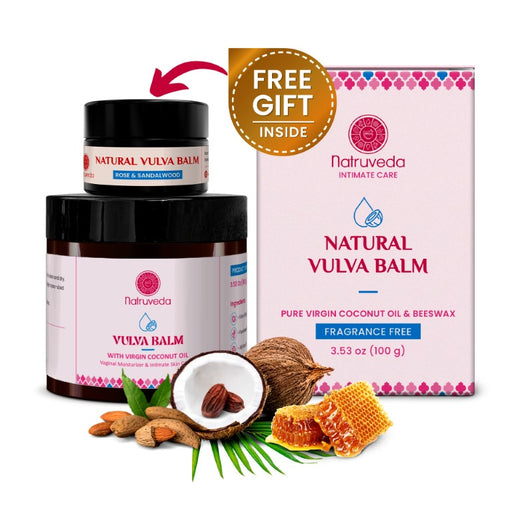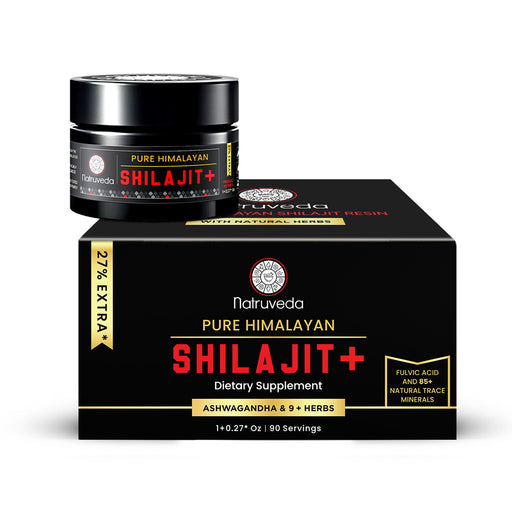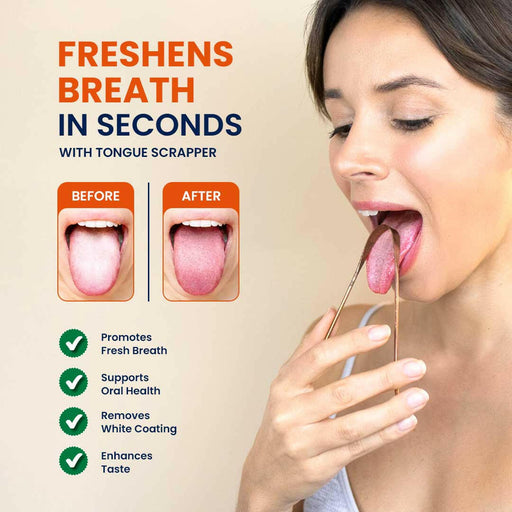1. Introduction: When the Itch Doesn’t Add Up
If you’ve ever wondered, “Why is my vulva itchy when there’s no infection?” you’re not alone. Many women suffer from an itching vulva but without discharge, odor, or any obvious signs of infection, yet the itchiness is very real and can disrupt life. It’s one of the most baffling and vexing intimate health problems.
This type of unidentified itching frequently leads women to a trial-and-error rabbit hole: switching laundry detergents, applying every cream for vulva itching or vaginal burning available on the shelf or taking prescription offerings like estradiol vaginal cream, clotrimazole vaginal cream or premarin vaginal cream — all with varying or short-term effectiveness.
But here’s something you may not have thought of: Do food allergies give you a vulva itch? Surprisingly, yes.
Neither patients nor healthcare providers often recognize the link between diet and vulvar health. But for some women, individual foods can induce systemic reactions, like skin irritation or inflammation around the vulva. Such symptoms can include persistent itching vulva without discharge, burning sensations or swelling that don’t respond to standard vaginal creams or antifungal treatments.
In this blog, we’ll discuss how food sensitivities and allergies could be the underlying source of your itching and burning vulva, and a natural solution like Natruveda Vulva Balm can provide soothing relief while you work towards the root cause.
2. My Vulvar Itching Is Unexplained. What Could Be Going On?
Vulvar itching—the urge to scratch or pacify the external vaginal area—afflicts many women at some point in their lives. It’s often tied to familiar offenders like yeast infections, sexually transmitted infections (STIs), or even hormonal shifts. In these cases, the symptoms are also accompanied by obvious signs such as unusual discharge, odor, or redness.
But what if the itch comes out of nowhere and you have no discharge?
Frustrating and puzzling experience, itchy vulva without flow. You may not see any visible irritation, and tests for infections may be normal. Still, the discomfort is real and enduring. A lot of women go skipping from one vaginal cream to another, trying vaginal itch creams, vulva itching creams, or even prescription stuff like clotrimazole vaginal cream or estradiol vaginal cream, seeking relief.
The reality? Other times, there’s no obvious external reason. Instead, the trigger might be something internal, such as your immune system responding to what you eat.
And so, can food allergies cause vulvar itching?
New research and patient accounts suggest that they can be. Just like they can affect the skin with hives or eczema in food allergies, they also can inflame the vulva and other sensitive areas. This inflammatory response doesn’t always come with discharge or an easily identifiable rash, which is why it is so frequently overlooked.
For women suffering from persistent vulvar itching, particularly when there’s no associated infection, the underlying issue may not be “down there” — but on your plate. Read on to learn how food sensitivities may silently be irritating your skin—and how natural options like Natruveda Vulva Balm can offer hormone- and worry-free support.
3. Hidden Culprit: Food Allergies and Sensitivities
If you’ve ever asked, “Can food allergies make vulvar itch?” —the answer is yes. Most people think of food allergies as causing digestive upset or skin rashes, but few consider that these reactions can also occur in more sensitive, less obvious areas of the body, like the vulva.
The body is an interconnected ecosystem. If you eat something to which you’re allergic or sensitive, it doesn’t just make your stomach sick. It can kick off a systemic inflammatory response, which is when your immune system goes on high alert. This inflammation can manifest anywhere, including as an itching vulva without discharge, odor, or visible infection.
So if you have ongoing vulvar itching, and conventional causes like yeast infections or sexually transmitted infections have been ruled out, it may be time to dig deeper into your diet.
List of Common Food Triggers Behind Vulvar Itching
Though everybody is different, some foods have been associated with hidden sensitivity that can inflame the skin:
- Gluten — Found in wheat, barley, and rye, gluten can be the source of autoimmune flares that can affect skin and mucous membranes.
- Dairy — A common food sensitivity trigger; causes inflammation and itching even without GI symptoms.
- Soy – Soy can be found in many processed foods and can balance hormones and cause allergies.
- Nuts – A common allergen that produces delayed hypersensitivity reactions.
- Sugar & Artificial Additives – Can disrupt the microbiome, promote inflammation, and irritate delicate tissues.
Sometimes, women who’ve tried everything from clotrimazole vaginal cream to estradiol vaginal cream don’t get relief — because the root cause is not external. It’s internal. Food allergy doesn’t always bring hives or swelling — it can just manifest as vulvar itching without discharge, and often with increased severity at night or around the menstrual cycle.
If you suspect that your symptoms are related to what you’re eating, you might try keeping a food journal or consulting an allergist. And in the meantime, easing away the irritation with a natural, hormone-free vulva balm such as Natruveda Vulva Balm can offer soft soothing in the absence of chemicals and fragrances.
4. Food-Related Vulvar Irritation Symptoms
If you are dealing with chronic pain “down there,” but without any of the usual symptoms of an infection, you’re not alone. Food-triggered irritation typically leads to very common yet easily overlooked signs, including an itching vulva without discharge or odor. But how could what you eat have an impact on such a sensitive, outside part of the body?
Let’s break it down.
What Vulvar Irritation From Food Feels Like
Women with food sensitivities often report symptoms like:
- Itchy vulva , no discharge or odor
- Pain, burning, or tearing of the skin on or around the vulva
- A stinging sensation, sometimes soon after eating certain foods
- A sensation of tingling or crawling skin that appears to worsen but has no clear medical cause
Unlike vaginal infections, which respond to antifungal treatments such as clotrimazole vaginal cream or terconazole vaginal cream, irritations triggered by food are often persistent despite creams or prescriptions. This can be frustrating, particularly if you’ve been prescribed ointments for vaginal itching or even estradiol vaginal cream and are still suffering.
The Why It Happens: Histamines and the Immune Response
For example, when your body responds negatively to an allergen (such as gluten, dairy, soy, or processed sugar), it releases histamines — chemicals that cause allergic responses. These histamines can create inflammation in several places in the body, including the vulva skin.
The vulvar skin is thin and delicate, so it’s more sensitive to systemic inflammation. This accounts for why food sensitivities can show up here first, and why women may experience burning and itching vulvas after certain meals—especially when no vaginal discharge or infection is involved.
This immune response may be part of the reason why women who have food sensitivities react to them at certain times during their cycle, or hormonal changes such as pregnancy and menopause, when their immune system is hyper-reactive.
So, can food allergies lead to vulvar itching? Yes — and if your symptoms aren’t clearing up with run-of-the-mill vaginal creams or vaginal itch creams, you may want to look beyond the medicine cabinet and into what you eat. For daily relief, a hormone-free, natural vulva balm like Natruveda Vulva Balm can soothe irritation while you determine and rectify the root causes.
5. How can you tell if it’s food-related?
If vulvar itching without discharge, redness, or irritation is confounding you, it may be time to consider asking the question. Can food allergies cause vulvar itching? The answer is yes, but figuring out the trigger takes some mindful sleuthing.
Create a Symptom & Food Log
The first step to identifying food-related vulvar irritation is to keep a daily journal of what you eat and any symptoms that occur. Keep track of everything from meals and snacks to the time of day and severity of pain. As time passes, patterns will likely develop. You may notice that symptoms like burning or an itchy vulva without any discharge always flare up after eating foods such as dairy, gluten, soy, or sugar.
Try an Elimination Diet
If you suspect an underlying sensitivity, an elimination diet can work wonders in uncovering hidden sensitivities. This process eliminates common allergens, including gluten, dairy, nuts, soy, eggs, and added sugars, for at least two to four weeks. Gradually add back one food group at a time and pay attention to your body’s reaction, particularly if vulvar itching returns.
If symptoms improve when avoiding the food group and return when it is eaten again, that food group may be responsible for your irritation.
If allergy or sensitivity testing is appropriate for the individual, this consideration may be given.
For closer insight and an accurate analysis, it can be beneficial to work with a qualified provider. (Though specific food allergy testing done by functional medicine doctors, and since many reactions happen hours after eating, traditional allergy testing (either skin or blood-based tests) or food sensitivity panels can’t pick up on reactions you wouldn’t otherwise notice.) These tests could help address that question more definitively: Can food allergies be blamed for vulvar itching in your particular case?
You may also discover that inflammation caused by certain foods is aggravating hormonal sensitivities — particularly if you’re already on treatments such as vaginal estrogen cream, estradiol vaginal cream or cream for vaginal dryness, but aren’t feeling better.
When to See a Specialist
If symptoms continue or worsen despite dietary changes, consult:
- An allergist — to determine whether it’s an immune-related food allergy.
- A functional medicine doctor for a whole-person perspective on gut health, hormones, and immune response
- A gynecologist to be sure you don’t have anything else going on, particularly if you’ve been trying something like clotrimazole vaginal cream or vaginal itch cream with little luck
Knowing your body’s specific triggers allows you to own your health. If vulvar itching is a chronic, unexplained issue, food may very well be the missing link. And as you get down to the root cause, a natural, hormone-free vulva balm such as Natruveda Vulva Balm that helps soothe irritation and bring relief (without the side effects of conventional vaginal creams) can provide temporary relief.
6. Natruveda Vulva Balm: Your Natural Solution
When you’re dealing with uncomfortable symptoms like an itching vulva without discharge, finding relief can seem like a frustrating guessing game, particularly if your doctor has ruled out infections or hormonal imbalances. That is where Natruveda Vulva Balm comes in as an ally in your healing journey that is safe and chemical-free.”
In the Meantime: A Gentle Solution While You Work Out the Cause
As you explore possible food sensitivities or work on allergy testing, Natruveda Vulva Balm provides soothing, immediate relief for irritated skin — without the side effects associated with traditional vaginal creams like estradiol vaginal cream or clotrimazole vaginal cream. As for the food allergies question (which so many of you have asked about), can food allergies cause vulvar itching? —Yes, they can. Best of all, Natruveda’s balm is the ideal natural answer while you dig deeper.
Powered by Nature, Formulated for Sensitive Skin
Formulated with soothing, nutrient-rich ingredients, Natruveda Vulva Balm aids in supporting the skin’s barrier:
- Virgin Coconut Oil – deeply penetrating and anti-microbial
- Beeswax seals in moisture while leaving a breathable layer of protection.
- Jojoba Oil — helps to balance out the natural oils and prevent inflammation.
- Sweet Almond Oil – calms itch and helps to soften tender spots.
These ingredients have a synergistic effect on calming flare-ups of non-discharging itching vulva, brought on by gluten, dairy, sugar, or other hidden dietary ingredients.
Why Natruveda Instead of Regular Creams?
As opposed to synthetic options (estrace vaginal cream, terconazole vaginal cream, premarin vaginal cream), Natruveda Vulva Balm is:
- Non-steroidal and hormone-free
- Paraben-, fragrance-, and irritating-preservative free
- Safe for daily use for pregnant women, menopausal women, and postpartum women
If you have used vaginal itch creams or antifungal vaginal creams without success, it’s time to turn to nature — because helping your skin shouldn’t come with a side effects list.
Take care of your body as you work toward identifying the source of the irritation. Even if food sensitivity might be the reason or any other environmental triggers, with Natruveda Vulva Balm, you experience mental peace and true comfort.
7. Tips to Keep You Comfortable & Prevent Your Condition from Getting Worse
Treating an itching vulva without discharge, particularly if it could be triggered by food sensitivities, begins with small daily habits that you can practice consistently: habits that nurture and protect your most sensitive skin.
1.Adopt a Mild, Fragrance-Free Regimen
Harsh soaps, synthetic fragrances, and tight fabrics can further irritate the skin and exacerbate symptoms. Opt for:
Gentle, fragrance-free cleansers
Underwear with cotton and breathable fabric
Skip douches or heavily perfumed body products around the vulvar region.
This gentler approach is particularly useful if you’re already thinking, “Can food allergies lead to vulvar itching?” —because skin that’s already inflamed by internal triggers requires nonreactive external care.
2. Apply Natruveda Vulva Balm Diurnal
Using a calming chemical-free balm like Natruveda Vulva Balm regularly to reduce inflammation and discomfort, the natural way. With ingredients including virgin coconut oil, beeswax, jojoba oil, and almond oil, it’s perfect for itching vulva without discharge from food-related sensitivities or environmental irritants.
Natruveda offers a natural, plant-based hydration alternative without synthetic additives and without the risk of hormone disruption as found in traditional vaginal creams like estradiol vaginal cream, vaginal estrogen cream, or clotrimazole vaginal cream.
3. Be Mindful of Food Triggers
If you’re dealing with chronic vulvar itching, try eliminating common offenders such as:
Dairy
-
Gluten
-
Sugar
-
Soy
-
Artificial additives
Taking a food diary and paying attention to when the symptoms emerge after specific meals can offer clarity and control. While sorting out the root cause, these little dietary changes can majorly bless you in reducing vulvar itching and making you comfortable.
4. Move as a Form of Self-Care: Can You Essentially Practice Body-Awareness?
Your body is constantly sending messages to you. Vulvar irritation—with no infection or discharge—is no time to accept a prescription, because it’s not something you can brush off: it’s an invitation to slow down, to listen, to take better care of yourself.
A blend of light hygiene practices, food consciousness, and the tranquillising effect of Natruveda Vulva Balm can give a permanent relief, in the full spirit of keeping a holistic, body-respecting routine.
If you think your symptoms are due to food, and you want to know can food allergies can cause vulvar itching? —The answer is yes. With a little mindfulness and some appropriate support, you can make progress today toward enduring comfort.
8. When to Get Professional Help
If you’ve been wondering whether you have food allergies that cause vulvar itching, and are beginning to detect a pattern, or if you’re having itching vulva without discharge that won’t go away, it’s time to discuss it with a healthcare provider.
Although many vulvar irritations associated with food sensitivities are manageable with natural modalities such as food elimination diets and calming topical agents, such as Natruveda Vulva Balm, there are occasions when professional insight is necessary.
When to See a Doctor:
- The itching is debilitating, chronic, or affects sleep or daily life
- You develop redness, swelling, or skin changes that do not improve.
- Symptoms are accompanied by other problems such as pain, abnormal discharge , or bleeding between periods.
- You have experimented with dietary changes, vulvar balms, and lifestyle modifications to no avail.
Chronic vulvar itching — particularly in the absence of discharge or infection — can sometimes overshadow more serious issues like lichen sclerosus, vulvar dermatitis, or autoimmune problems. Yes, even food allergies or sensitivities can initiate chronic inflammation that would present like these conditions.
Do Natural Care and Clinical Testing Together
Pairing your natural self-care routine with medical support doesn’t equate to giving up your holistic approach — it deepens it. A qualified allergist or functional medicine practitioner to test for hidden triggers, such as gluten, dairy, soy, or artificial additives, that may aggravate vulvar itching.
They can also eliminate the need for prescription treatments like estradiol vaginal cream, clindamycin vaginal cream or antifungal vaginal creams, which sometimes are warranted but should be used judiciously.
Empower Yourself with Answers
The most empowering way forward seems to be a balanced one: try natural remedies, such as applying Natruveda Vulva Balm to relieve irritation and establishing a daily care regimen, but be sure to seek out a professional if symptoms linger or worsen. Nature and science can also play beautifully hand in hand when it comes to your health.
And keep in mind: can food allergies be responsible for vulvar itching? Absolutely. But you aren’t alone in trying to solve it.
9. Conclusion: Listen to Your Body
If you’re having itching vulva without any discharge, it’s perfectly normal to feel that sense of confusion—or even dismissal —especially when there’s no infection and the usual treatments, including clotrimazole vaginal cream or vaginal estrogen cream, don’t do the trick. But here’s the deal: food-related vulvar itching is real. Why, yes, can food allergies cause vulvar itching? Absolutely.
Many women experience vulvar itching, redness, or burning due to food sensitivities and suffer in silence. These reactions may not register on a conventional test, but they can induce chronic inflammation in the body’s most sensitive regions. That’s why paying attention to your body is such an important form of self-care.
Mindful Care. Natural Relief.
Instead of continuously grabbing for estradiol vaginal cream or anti-itch vaginal creams, allow your body to heal. Be mindful of which foods might be causing your symptoms. Consider keeping a food journal, minimizing common allergens such as dairy, gluten, or artificial additives, and helping your skin from the inside out.
Natruveda Vulva Balm is specifically formulated for this. Composed of 100% natural ingredients such as virgin coconut oil, beeswax, jojoba oil, and sweet almond oil, it provides mild, hormone-free comfort without chemicals or aggressive preservatives. It’s the best option for an itchy vulva without discharge, particularly if those symptoms are related to dietary reactions or immune flare-ups.
Support Your Body—Naturally
Are you sick of playing the guessing game, worrying about symptoms or using pesky pharmaceutical creams like estrace vaginal cream and premarin vaginal cream to mask them?
- 💚 Trust your body.
- 📝 Track your symptoms.
- 🌿 Nurture your skin with Mother Nature.
Try Natruveda Vulva Balm today for a calm, confident comfort—naturally.
Are you ready to calm your sensitive skin without compromise?
You can find this product along with genuine customer reviews on Amazon or learn more and purchase directly from Natruveda.com.








